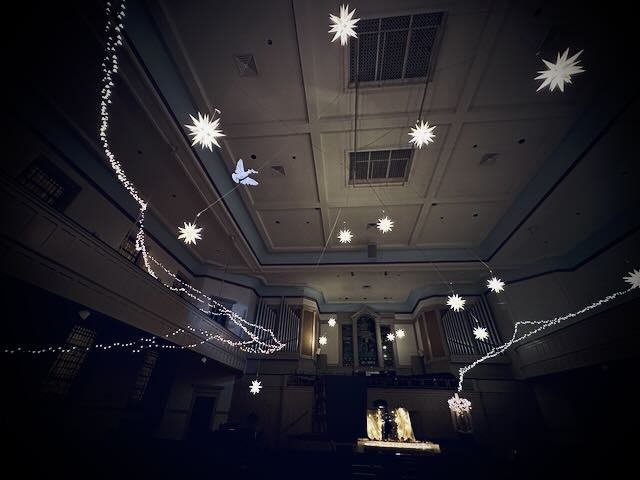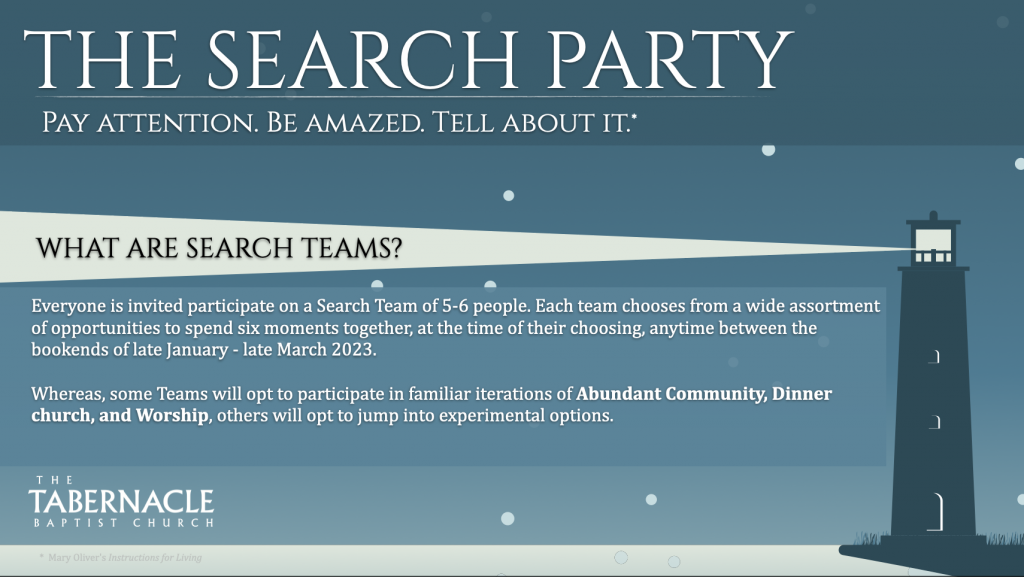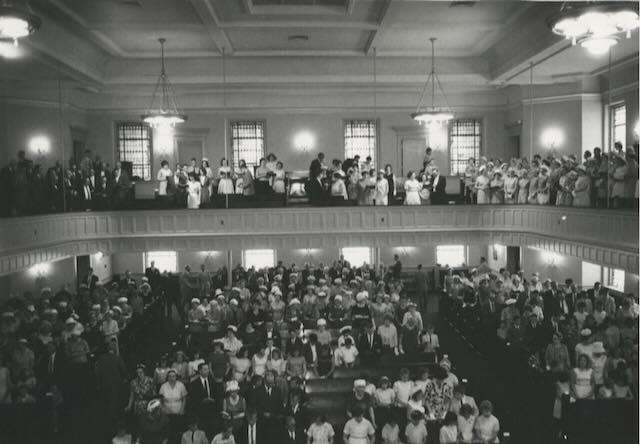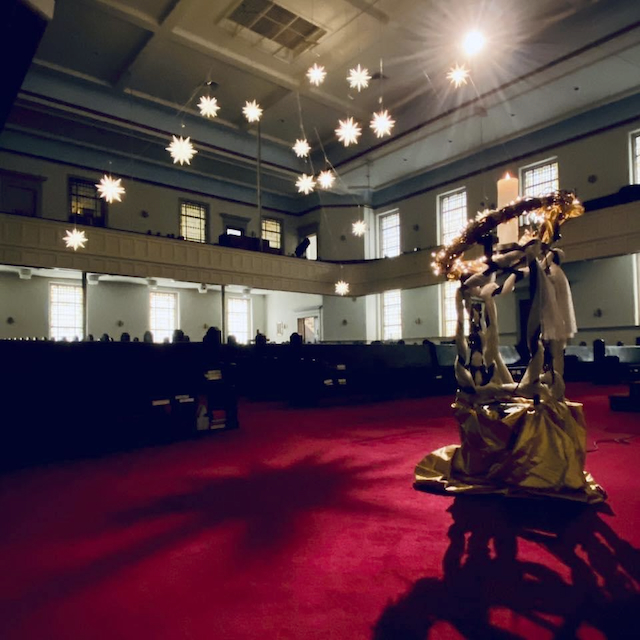Over the next several weeks during the holidays, we have many opportunities to worship, serve and support our Ministry Programs. Here is a snapshot of what will be happening in the life of our church.
LAST DINNER CHURCH before hiatus – December 14th
We hope you’ll join us for “Dinner Church” this Wednesday, Dec. 14. Participants can opt to arrive at 5:45 p.m. for pre-dinner dialogue in the Sanctuary or arrive in the fellowship hall just prior to 6:30 p.m. It’s important for us to have an accurate headcount for the meal. Please click this link to RSVP by 5:00 PM today. (Tuesday, December 13)
CHRISTMAS BASKETS – December 16th & 17th
This Saturday, December 17, we will gather to distribute food and Christmas Baskets to neighbors. Plan on joining us Friday morning, December 16, at 10am to pack baskets and Saturday morning at 7:30am to be present with our neighbors.
Saturday, December, 17th, 8:00 PM Candlelight Concert at Bruton Parish Episcopal Church, 201 Duke of Gloucester St. Williamsburg, VA
The Tabernacle Baptist Church Sanctuary Choir and Handbell Choir will present a concert of Christmas music as a part of the Candlelight Concert Series in the beautiful setting of historic Bruton Parish Church in Williamsburg, Va. If you would like to attend this concert you should plan to be at the church by 7:00 PM so we can let you in so you will be guaranteed a seat. Please knock on the doors just inside the gate to the churchyard. Doors open to the public at 7:15 and the church is usually full. Because of special events in the Colonial area of Williamsburg that evening there is NO parking in front of the church on Duke of Gloucester St. Parking is available in other places around the historic area. The Tabernacle Choirs have been participating in this Concert series for about 40 years.
Sunday Morning Worship – December 18th
Our 11:00 AM Worship led by our Sanctuary Choir and Handbell Choir. We will celebrate the fourth Sunday of Advent with a service of music celebrating the birth of Jesus. This Sunday the “Love” candle will be lit as we make our final preparations for the celebration of Christmas.
CHRISTMAS IN THE FAN CONCERT – December 18th
4:00 PM – Christmas in the Fan: a concert presented by the Richmond Concert Band and the Tabernacle Choirs. Richmond Concert Band is a community band with more than 80 members. The band was founded in 1971. RCB has called Tabernacle Baptist Church home since about 1985. This concert is a festive event that celebrates the music of Christmas, sacred and secular. The concert will last about 90 minutes and is appropriate for all ages.
CHRISTMAS EVE CANDLELIGHT WORSHIP SERVICE – December 24th
On Saturday, December 24, at 5:00 PM our annual Christmas Eve Service will be held in the Sanctuary. This service is one of the most creative and beautiful worship services of the year. This worship service will consist of scripture readings which tell the story of the birth of Jesus along with music provided by soloists and ensembles. At the end of the service we will light the Christ Candle and pass the light on to each other as we light our candles. Worship will conclude with the singing of “Silent Night” together as the light from the candles fills the Sanctuary. We hope you will join us on this Holy Night.
CHRISTMAS DAY WORSHIP SERVICE – December 25th
Joy to the World, the Lord has come! We hope you’ll make plans to join us for worship at 11 AM on Sunday, Dec. 25. (please note: please check with your Sunday School Class leader to see if you are meeting this morning, otherwise, Sunday classes and programs will resume on January 8).
NEW YEAR’S DAY WORSHIP SERVICE – January 1st
Start 2023 at TBC! We hope you’ll make plans to join us for worship at 11 AM on Sunday, January 1. (please note: please check with your Sunday School Class leader to see if you are meeting this morning, otherwise, Sunday classes and programs will resume on January 8).
LOOKING AHEAD…………
CHURCH-WIDE RE-VISIONING RETREAT – January 13-15, 2023
God is preparing our historic church for a new chapter…..a new day….a new beginning. TBC leadership has invited Mark Tidsworth, founder and team leader of Pinnacle Leadership Associates, to bring the entire congregation together for a weekend of discerning dialogue. CLICK HERE for more details.







